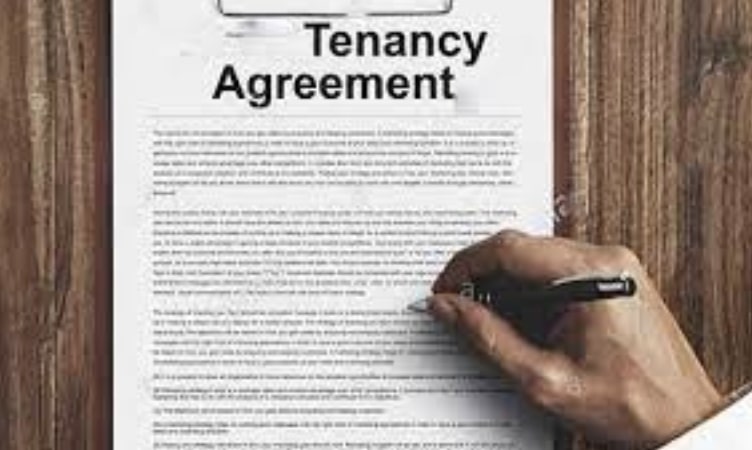 tenancy agreement in nigeria" width="752" height="450" />
tenancy agreement in nigeria" width="752" height="450" /> tenancy agreement in nigeria" width="752" height="450" />
tenancy agreement in nigeria" width="752" height="450" />
A “Landlord and Tenant Agreement,” often called a tenancy agreement, is a legal deal that sets rules for how a tenant can live in a landlord’s property for a certain time. This agreement covers things like paying rent, looking after the property, and how the property can be used. It makes things clear and safe for both people in the agreement and sets out rules to stop problems and arguments. They usually have different rules, like no cooking or limiting visitors, and knowing these rules is important for landlords and tenants to protect their rights and duties in the agreement. Don’t worry, in this article, I’ll educate you on everything you need to know about tenancy agreements.
A landlord-tenant agreement in Nigeria is a legal paper that says what the landlord and tenant can do. It helps ensure a smooth rental experience for everyone involved. While there is no law for landlords and tenants, the lawyer writes many documented tenancy agreements between the two parties. It establishes what both parties will provide and receive from one another. The absence of a tenancy agreement in a tenancy relationship does not mean that both landlord and tenant have no rights in the tenancy. Landlords and tenants have their rights. However, a rental agreement is important. It helps landlords and tenants and explains their rights.
NOTE: It’s important to know that in Nigeria, lawyers usually make rental agreements to follow local laws.
Typically, the Nigerian Tenancy Agreement is written by:
Tenants get the terms of the tenancy from their landlord, who owns the property. The lawyer charges for the tenancy agreement. A tenancy agreement will be drafted by a lawyer with whom the landlord chooses to work with.
The rights of a tenant include:
Tenants are advised to review their tenancy agreements to ensure they are protecting their interests. While most tenancy agreements are straightforward, some people still do not find them easy to understand.
I’ve seen situations where some tenants are prohibited from doing several things in their rented apartment as much as not being able to use an interior design company in Lagos Nigeria. And surprisingly, this was stated in their tenancy agreement.
I advise that you have a lawyer review the terms and advise on how they affect the tenant’s rights now and in the future.
You need to ensure that your tenancy agreement includes the following terms and information, at the very least:
There are more terms than those listed above. Tenancy agreements are the most important part of any rental agreement, as they govern the relationship between both parties. As a tenant, insist on signing a tenancy agreement form to avoid unnecessary issues.
Tenant’s responsibilities include but are not limited to:
Before renting out a property in Nigeria, you must create a tenancy agreement with the tenant. The prospective landlord will provide the Tenancy Agreement to you when you become a tenant. The landlord’s lawyer can also prepare the tenancy agreement on behalf of the landlord and present it to you on arrival.
We recommend talking with a lawyer who can give you a quick review of the tenancy agreement and assist you with understanding the implications.
THIS AGREEMENT IS
Mr/Mrs/Ms…………(Landlord) represented by Mr…….(Property Lawyer/agent) of Address……………., City………. State……….. (called the “LANDLORD” which expression shall where the context so admits include his heirs, representatives and assigns) of the one part.
Mr/Mrs/Ms………….. (Tenant) of Address…………. City………… (called the “TENANT”) which expressions shall where the context so admits include his successor in–title and assigns) of other parts.
The tenant has accepted the lease offered by the landlord to take (1),(2) Bedroom flat at Address………….. on an annual rent of N180,000.00 (one hundred and eighty thousand Naira) only p.a. starting from Date…. Day… of Month… Year…… to Day…….. of Month… Year
THEREFORE, IT IS AGREED AS FOLLOWS:
(1) That the Tenancy shall be for ONE (1) year CERTAIN, effective in starting Date…… to Expiry Date……. with OPTION or NO OPTION FOR RENEWAL
(2) That the annual rent for the premises is N1800,000.00 (one hundred and eighty thousand Naira) only payable in advance of ONE (1) year.
THE TENANT COVENANTS WITH THE LANDLORD AS FOLLOWS:
Here the tenant must abide by the following rules:
WE AFFIRM that the premises and fittings & fixtures are in good working order.
IN WITNESS THEREOF:
The parties have hereunto set their hands and seal the day and year first above written.
SIGNED, SEALED, AND DELIVERED
By the within named LANDLORD ………………………………..
Through his lawyer/Agent Mr………..lawyer/Agent (Landlord)
for: Head of Practice
IN THE PRESENCE OF
THE COMMON SEAL OF THE WITHIN NAME: TENANT
IN THE PRESENCE OF:
Landlords who want to rent out their property commonly use tenancy agreements. Each tenancy agreement outlines the conditions that have been agreed to by both parties.
Normally, a tenancy agreement is prepared by the lawyer and given to the landlord or by the landlord and reviewed by the lawyer and should be carefully reviewed by a prospective tenant before signing.